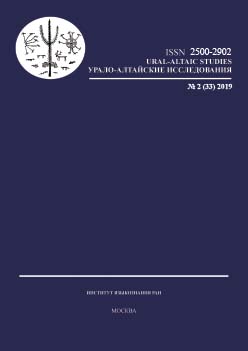Полипредикация в японском устном нарративном дискурсе в сравнении с письменным: опыт корпусного исследования синтаксической сложности
Clause-combining in Japanese oral and
written narrative discourse: a corpus-based research on syntactic complexity
Author(s): Vera I. Podlesskaya, Valentina A. OzolinaSubject(s): Language studies, Syntax, Pragmatics
Published by: Институт языкознания Российской академии наук
Keywords: clause-combining; spoken discourse; Japanese; syntactic complexity;
Summary/Abstract: Based on a corpus of personal stories produced by Japanese university students (N = 14) the paper compares clause-combining (CC) strategies in oral and written narrative discourse. The results show that the mean length of CC complexes (grammatically marked combinations of clauses), as well as the rates of coordinators and narrative converbs (the most frequent grammatical markers of CC) are higher in oral stories compared to written stories produced by the same speaker. With respect to CC, Japanese appears to differ dramatically from languages like Russian, English, Spanish or Hebrew, which, in earlier studies, were reported to have shorter CC complexes in oral discourse in comparison with written discourse. This can possibly be explained by the fact that, in oral stories, Japanese, as a left-branching language, intensively employs the so called “clause-chaining” strategy, while the above mentioned right-branching languages rely more on prosodic rather than on grammatical means of CC.
Journal: Урало-алтайские исследования
- Issue Year: 2019
- Issue No: 02 (33)
- Page Range: 83-100
- Page Count: 18
- Language: Russian

